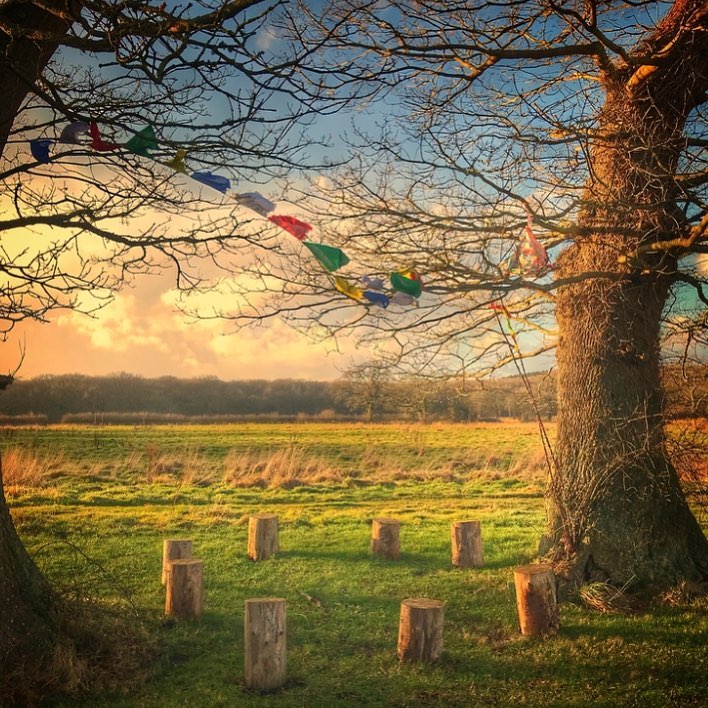Please tell us a little bit about yourself and your journey.
I grew up in London and was raised by very socially-minded parents from international backgrounds. When I went to university I studied International Development in Sussex University and also volunteered at our local earthship while starting to learn about permaculture. This seed started to take root in me after leaving university and after some years experimenting with documentary filmmaking. I’ve always believed that change starts at home, so I focused on the UK, using family resources towards impact investing.
After a couple years living in the city, I felt the calling to grow my own food and live in closer connection to nature. This led me to Somerset where I co-founded 42 Acres with my sister, based upon our shared belief that we must practice what we preach and that change starts from within. The focus was initially around wellbeing and inner transformation and has today evolved towards supporting a local and regenerative economy, with a local and regenerative food system at its core, where 80% of all the ingredients are sourced from within a 42-mile radius, most of which are grown on our land.

A dream is an aspiration, a vision or an intention. Local is a mission, how we get there
What does “dreaming locally” mean to you?
A dream is an aspiration, a vision or an intention. Local is a mission, how we get there. To dream local is to create the vision and possibility of a future focused around a local economy; one that is regenerative and resilient. This means locally sourced food, materials, labour, energy. This creates a stronger sense of community and deeper sense of connection with ourselves, with our local natural environment, and with others.
What are the biggest challenges that prevent us from connecting with nature, locally?
I don’t believe there are any challenges too great to create the local future we dream of in the longer term. However, in the shorter term we are constantly faced with the challenges of cost. Industrialised goods are subsidised by externalities including slave (or underpaid) labour and environmental destruction, as well as the economies of scale. Local businesses often can’t compete, especially in an economic system that prioritises money and time over wellbeing of people and the planet, making it hard to compete in the short term.
In the longer term, this kind of economy will naturally shift, as we’ve seen with Covid-19, to priorities like resilience of local food systems, as it starts to outweigh the short term benefit of saving money on food. This will only amplify, as we cannot sustain the current economy on an extractive system. So either we choose to create a local economy and prepare for the future, or it is chosen for us and we’re not ready!

Let's not forget the importance of just going for a walk and visiting your local trees; they know what local means better than anyone else could possibly imagine!
What kind of impact do you imagine local living has on society and the environment?
The local economy is the antithesis to the globalised and industrialised economy, where corporations hide behind the masks of brands, accreditations and greenwashing. Local living is far more connected and can improve the overall wellbeing of communities and the natural environment.
If we take food as an example, a local food system alone invites fresher food, a lower carbon footprint and less packaging from less travel. This also means a healthier, seasonal diet with fresher ingredients and a connection to where our food comes from, so there is direct accountability for the local producers.
How can others dream locally?
It starts with a mindset of choice, saying to oneself: I want to support a more local future. Supporting local shops, local businesses, finding local food suppliers that produce ethically is a great and easy start. It also means avoiding supermarkets and big chains as much as possible and always trying to choose the local alternative. Beyond this, it can mean choosing to engage locally in politics or projects that are dear to your heart as a way of connecting and building community locally.
And let's not forget the importance of just going for a walk and visiting your local trees; they know what local means better than anyone else could possibly imagine!




